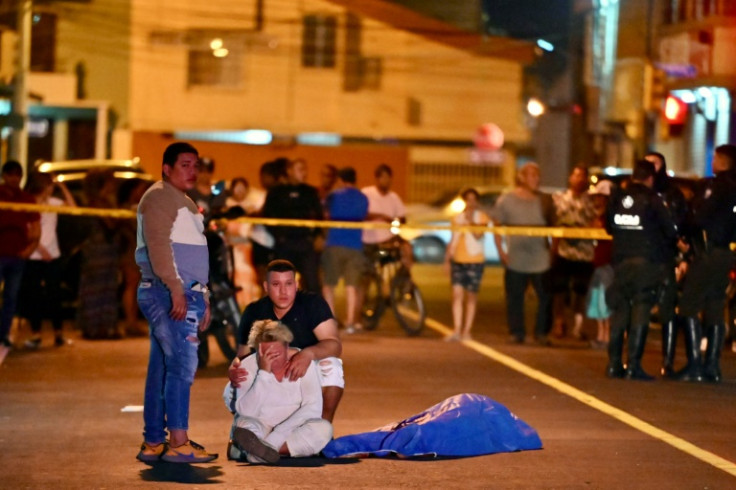
The images that shocked the world, depicting the live takeover of a television station by a group of armed men wearing balaclavas, added a dramatic touch to the escalating violence that has engulfed Ecuador for several months. Analysts attribute part of the problem to the presence of criminal factions affiliated with Mexican and Colombian drug cartels.
President Daniel Noboa ordered the deployment of the Armed Forces nationwide to combat narco-terrorist groups. He declared an "internal armed conflict" in response to the national security emergency provoked by the escape of one of the country's most notorious drug lords.
The escape of Jose Adolfo Macias, alias 'Fito,' triggered the biggest crisis Noboa has faced since he assumed power in November 2023.
Fito, according to information from the Ecuadorian government, is the leader of the criminal group Los Choneros, one of the largest drug cartels in the country. Security and organized crime experts state that Los Choneros are associated with the Sinaloa Cartel.
"Ecuador is now under full control of a local gang tied to the Sinaloa Cartel," wrote in an analysis Luis Chaparro, a journalist covering narco-violence in Latin America. "The Los Choneros gang has been scaling its ties to the Sinaloa Cartel as their main cocaine source in South America."
According to InSight Crime, a U.S. think tank that studies organized crime in the Americas, Los Choneros are a relatively recent group that rose to international visibility following the August 2023 assassination of then-presidential candidate Fernando Villavicencio.
This murder, says InSight Crime, "revealed criminal dynamics that have evolved exponentially over the past four years, plunging the country into unprecedented levels of violence."
Headed by violence-prone leaders such as Fito and his henchmen, Los Choneros became a dominant group in Ecuador, establishing ties to mafias from Colombia and Mexico, mainly to provide safe transportation for cocaine shipments.
With Fito on the run from justice, Ecuador could be at risk of a further escalation of violence, as the capo has called on Los Choneros to commit criminal acts across the country pressuring the government to negotiate a halt to the persecution against him.
So far, Noboa pledged no negotiations will be held.
"We will not negotiate with terrorists nor rest until we return peace to all Ecuadorans," the president said.
However, experts believe that the threats of more violence from Los Choneros could also trigger clashes with their rivals in Ecuador, Los Lobos, with whom they are locked in a battle for control of cocaine smuggling routes.
There are two simultaneous violent and politicized fights in Ecuador: criminas versus the government and criminals versus criminals, says James Bosworth an expert on politics and security in Latin America and author of the Latin America Risk Report.
Bosworth says Los Choneros and Los Lobos were originally fighting mostly about trafficking routes and prison control. However, but as seen during the electoral period last year, their fight has evolved to be"about politics, power, image, and influence."
"The side that can demonstrate it has the capacity to take on government forces and win will have leverage moving forward," Bosworth said.
Whatever the outcome of these confrontations and turf wars, Ecuador will remain mired in a crime spiral that has taken the country from 6 homicides per 100,000 inhabitants in 2016 to more than 30 by the end of 2023.
© 2025 Latin Times. All rights reserved. Do not reproduce without permission.




